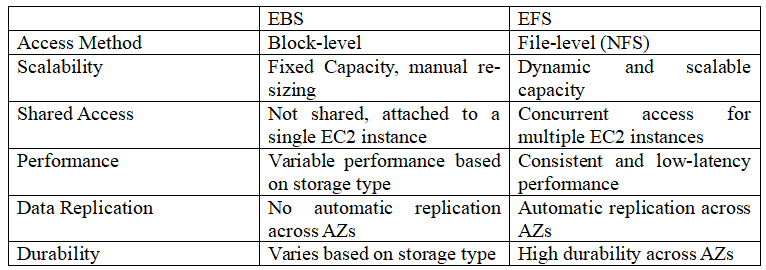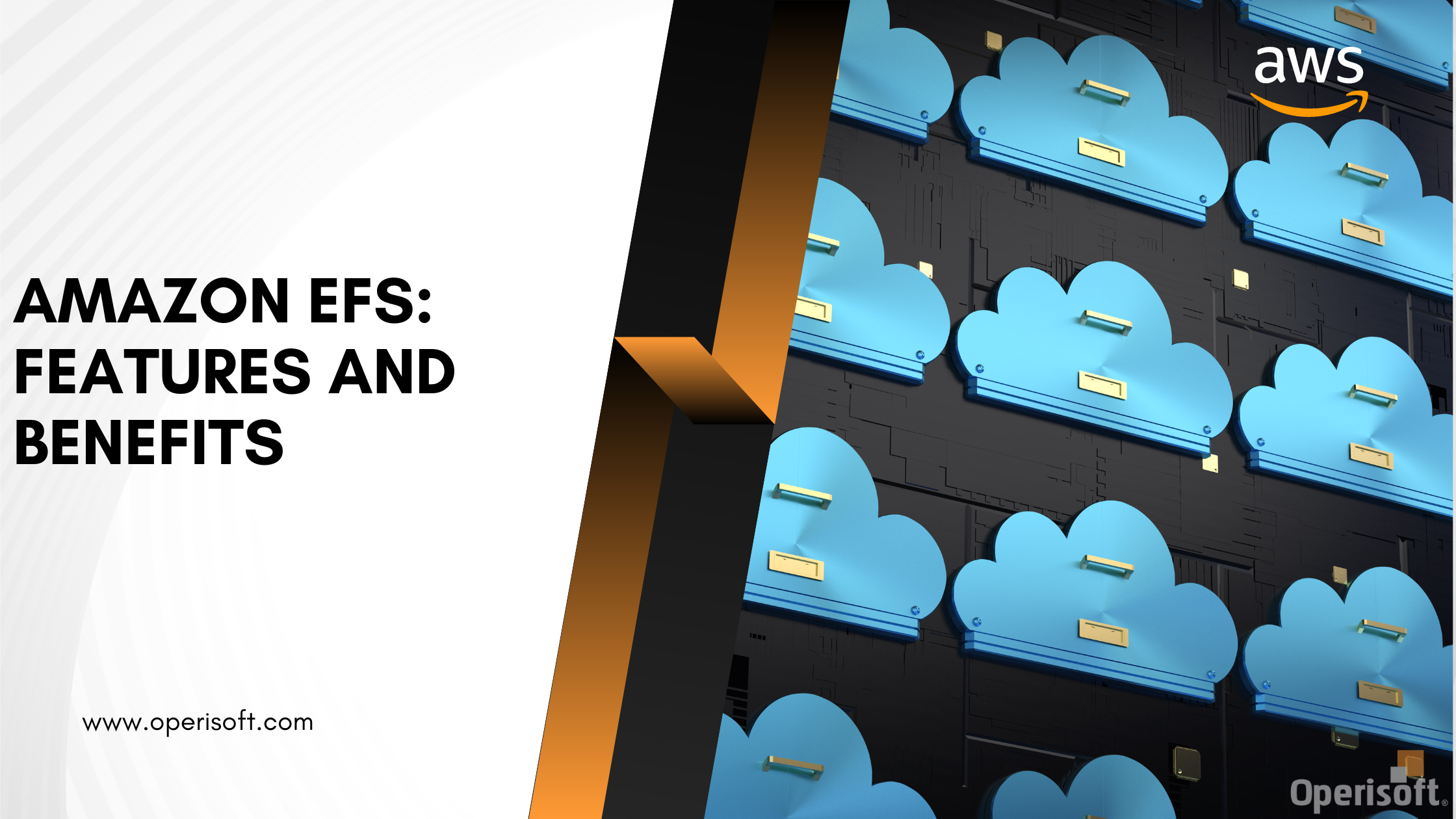Imagine a world where your cloud-based applications never worry about running out of storage space. Welcome to AWS EFS, the scalable and elastic file storage solution that effortlessly adapts to your application’s growing demands.
In the rapidly evolving world of cloud computing, managing file storage efficiently and securely is important. Amazon Web Services (AWS) Elastic File System (EFS) provides serverless, fully elastic file storage so that you can share file data without managing storage capacity and performance. It offers a flexible, scalable, and managed file storage solution for cloud-based applications. Whether you’re running a content management system, or a distributed application, AWS EFS provides the performance, scalability, and durability needed to meet your storage requirements.
EFS Integration with different AWS services
- Amazon EC2– EC2 instances can mount EFS file systems as network file systems (NFS), allowing applications running on EC2 instances to access and store data in EFS. Multiple EC2 instances can simultaneously access the same EFS file system, enabling shared file storage across instances.
- Amazon Lambda– AWS Lambda, a serverless compute service, can also access EFS. You can configure Lambda functions to mount an EFS file system, allowing your serverless functions to read from and write to shared storage.
- Amazon ECS– Amazon Elastic Container Service (ECS) can integrate with EFS. Containers running on ECS can mount EFS file systems as persistent storage, enabling data sharing and persistence across containerized applications.
EFS Storage Classes
- Standard Storage classes- EFS Standard and EFS Standard–Infrequent Access (Standard–IA), which offer Multi-AZ resilience and the highest levels of durability and availability.
- One Zone Storage Classes- EFS One Zone and EFS One Zone–Infrequent Access (EFS One Zone–IA), which offer you the choice of additional savings by choosing to save your data in a single Availability Zone.
Features of EFS
- Scalability: AWS EFS automatically scales its storage capacity as your data grows, without requiring manual intervention or disruptions. It can handle petabytes of data and millions of file systems, accommodating applications with varying storage needs.
- Elasticity: With AWS EFS, you only pay for the storage you use. It dynamically scales up and down to match the demands of your applications.
- Performance: EFS delivers low-latency, high-throughput performance for a wide range of workloads. Its highly parallel architecture allows for concurrent access to files, enabling applications to access data quickly and efficiently.
- Durability and Availability: EFS replicates data across multiple Availability Zones (AZs) within a region to provide high durability and availability. Even in the event of an AZ failure, your data remains accessible and protected, minimizing the risk of data loss.
- Backup and Restore: EFS provides built-in backup and restore capabilities, allowing you to create automated backups of your file systems. You can easily restore file systems from these backups, ensuring data protection and recovery.
- Encryption: EFS supports encryption at rest using AWS Key Management Service (KMS) keys. You can encrypt your data to meet security and compliance requirements, ensuring that your files are protected.
Comparison of EBS and EFS

Mount EFS to EC2 Instance
You can mount EFS to EC2 instance by two methods-
- If you are creating new instance there is a option called file system there you can attach EFS.

- Attach EFS manually to running EC2 instance
- Login into your Linux EC2 instance.
- Create directory- mkdir efs.
- Go to EFS service and open your file system.
- Click attach there you will find a command for mount.

- Copy the last command and past it into your server to mount.
Note: If your server does not have NFS client you need to install.
Conclusion:
AWS EFS offers a powerful and fully managed file storage solution for cloud-based applications. Its scalability, performance, durability, and seamless integration with other AWS services make it a compelling choice for organizations seeking reliable and efficient storage.
By leveraging AWS EFS, you can focus on developing your applications while ensuring that your data is secure, accessible, and highly available.







